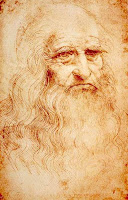
Ancient people used myths to explain the world. It was a way of trying to make sense of their surrounding and of all the ensuing existential questions and dilemmas. A myth is not simply a “lie” - that would be diminishing or belittling it - but rather a symbolic representation of truth.
In fact, people used to believe in myths because they represented a higher truth for them, in a similar way we may believe in God and the afterlife. For them, nature was animated and alive. They did not have the scientific conception of living subjects that are separated from material objects. To them, nature was an active and willful agent and, in fact, more powerful than anybody else.
This led to some curious beliefs. For example, if you hurt yourself when cutting a plant, it doesn't simply mean that you were inattentive - rather it meant that the plant was actually attacking you or that you were upsetting the god of plants who took revenge on you. This perception then led them to “fear” nature the same way we may fear another person's violent reaction.
Such a view, often called “primitive” in a somewhat derogatory sense, exists most clearly during childhood. Children do not have a scientific mind yet, it is a worldview they shall acquire over the ensuing years, and hence they do not treat objects as lifeless things. This magical pre-scientific perception of toys coming to life or of doors willfully attacking demonstrates a fertile and often poetic imagination that they tend to lose in adulthood.
However, I cannot help but wonder how sometimes my computer plays tricks on me or deliberately annoys me! Or when your car decides to break down exactly on the day when you finally have the long-awaited date or when you have an important final exam. Or when your television and in some cases maybe even your clothes suddenly malfunction during an important event that is broadcast live.
However, another way the ancient pre-classical people differed from us was in their conception of time. They believed that time was eternally recurring, circular, repetitive, and endless. Every day the world was created anew. The Sun God defeated the night, good won over evil, and thank Sun God, all were granted an extra day.
There were cycles when it would get hot and then cold with periods of droughts and rain, some of which could supposedly only be influenced by praying, performing rituals, or making sacrifices to the gods. We can say that there was no innate sense of progress or progression; since everything mostly depended on the gods, human influence on events was very minimal and of little importance.
This seems odd with our modern perception of linear time and singular events. By giving dates to events, we single them out and make them unique and hence they cannot be repeated. Even the same or similar event would not be and could never be exactly identical. We do sometimes fall prey to the illusion that we have been caught up in an endless routine of work or school, but as it turns out, never do we find ourselves in exactly the same circumstances, no matter how little the differences may end up being. Today, for example, Joe at work wore a blue instead of a white shirt.
Another oddity would be that when you have no perception of time, you will have no birthdays. People did not count (or count “down”) each and every moment of their lives by adding a new number to their lives. If we are not aware of how old we are, we might actually be more optimistic and feel “younger.” We do not have to lie about our age anymore or complain about our midlife crisis. Life would be or seem in a way eternal, as time flows, but we do not perceive or hear its ticking on the wall.
There are, however, certain other myths and rituals that we take dead earnestly and that have its origin from “primitive” times. Of course, we can say that the aforementioned birthday is simply the celebration of creation. We look back to the moment where it all started and celebrate it all over again. The same can be applied to any other festive events that have mythical roots, such as Thanksgiving, where we give thanks for the harvest that was provided us this year, so that the gods or God see our gratitude and bless us with the same the following year.
But more importantly, most of us take elaborate planning in creating and having an unforgettable wedding, whereas a bridezilla would be a mythical creature indeed! A wedding with all its rites and rituals is, in fact, a symbolic and mythical event. We exchange rings as a sign of symbolic and eternal union. We bind our souls through the affirmation that we will love each other at all times and until death do us part. Time stops there and then, and we make vows that tie and connect us to all the vows ever taken in the history of humankind.






